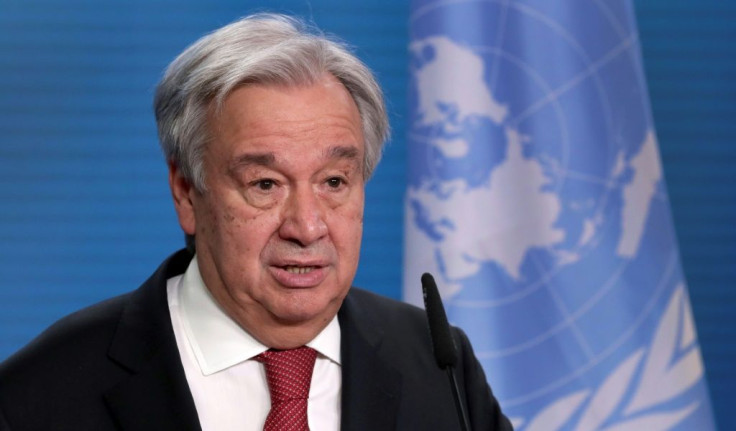UN Calls For Countries To Sign Ban On Anti-personnel Mines
UN Secretary General Antonio Guterres called Thursday on countries that have not done so to sign an international treaty banning anti-personnel mines.
The accord, which went into effect in 1999, bans the acquisition, production, stockpiling and use of the weapons.
The countries that have not signed up include the United States, China, Russia, India, Iran, Israel, Myanmar, North Korea and Vietnam, which called for Thursday's debate.
"More than 160 states are party to the Anti-Personnel Mine Ban Convention. I call on those that have not yet acceded to the convention to do so without delay," Guterres said during a Security Council debate after a short video featuring the actor Daniel Craig, who works for the UN drive to eradicate anti-personnel mines.
"Our main worry is that this convention only gives a short amount of time for neutralizing mined areas," a Vietnamese diplomatic source said. The southeast Asian nation, scarred by the Vietnam War in the 1960s and 70s, needs decades to get that work done, the source said.
Signatories are expected to have ceased production and development of anti-personnel mines, destroyed their stockpiles and cleared all their mined areas within 10 years of ratifying the treaty, although this timeframe can be extended.
Children playing outdoors in former war zones are among the main victims of anti-personnel mines around the world. The weapons can be small and rudimentary or terribly destructive.

Nguyen Thi Dieu Linh, a Vietnamese official working to rid the country of mines, was warmly applauded after addressing the Security Council -- a rare overt show of approval by members.
In his speech Guterres also warned against development of improvised explosive devices (IEDs).
He said these are "the greatest threat" to UN forces in Africa, from Somalia to Mali.
"New explosive threats are emerging in the Central African Republic and the Democratic Republic of the Congo," he said.
"Landmines, IEDs and explosive remnants of war represent the worst of humanity. But efforts to eradicate them reflect humanity at its best. Let us today commit to intensify our efforts to rid the world of these inhumane threats," said Guterres.
The council later approved a statement saying it was "deeply concerned" by anti-personnel mines.
It "emphasizes the importance of mine action and the need to enhance international efforts in this field, particularly in situations of armed conflict. The council also calls upon member states to comply with their respective international treaty obligations related to mine action."
© Copyright AFP {{Year}}. All rights reserved.





















